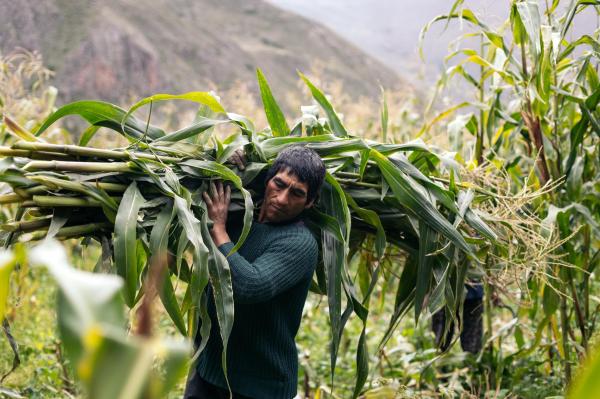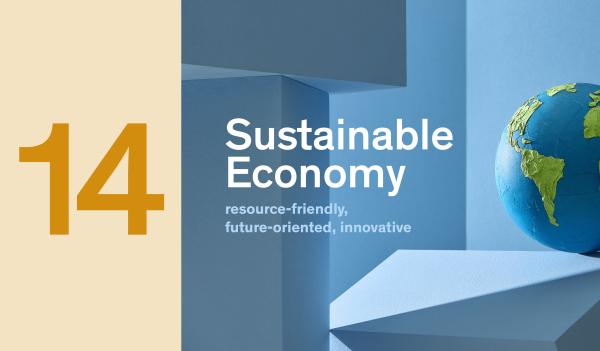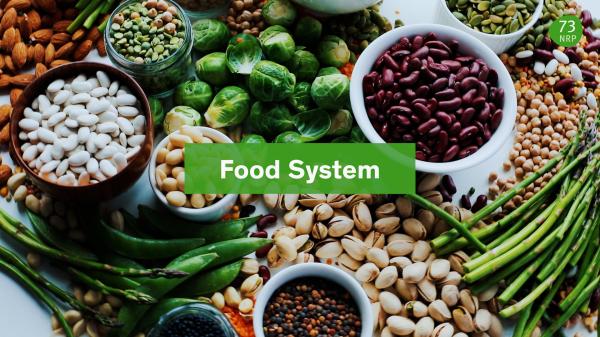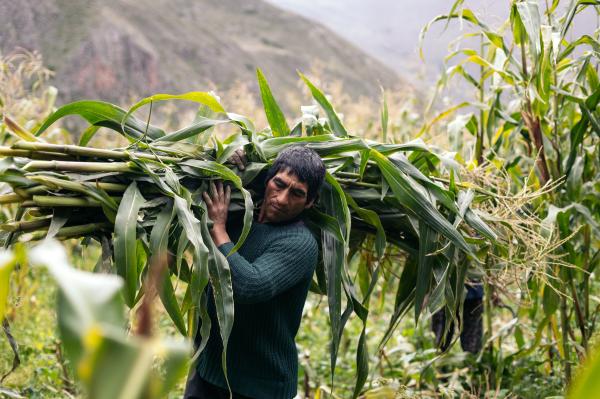Sustainable Trade Relations for Diversified Food Systems
Transforming food systems requires addressing both domestic production and trade. We developed a concrete legal proposal to show how governments can create more nuanced, sustainable trade relations by supporting vulnerable but highly sustainable food systems while disabling particularly harmful ones.
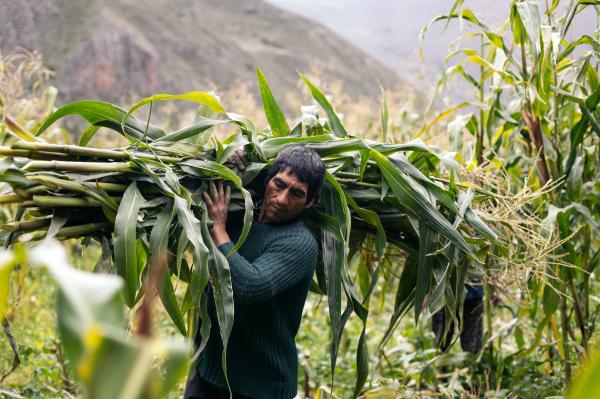
Background
Diversified food systems are more sustainable than specialised ones. They support ecological and economic diversification, distribute social benefits equitably, and contribute to a diversified food basket. But their products tend to be outcompeted by products from specialised systems. Governments are seeking ways to incentivise sustainable food production and disincentivise unsustainable production by complementing and strengthening private-sector approaches in a balanced and proportionate way.
Aims
The project objective was to concretise Article 104a lit. d of the Swiss Federal Constitution, which requires the Swiss government to provide for “cross-border trade relations that contribute to the sustainable development of the agriculture and food sector”. By developing model sustainability-focused trade regulations, the project aimed to inform and inspire both domestic and international governance, with a view to supporting sustainable and diversified food systems worldwide.
Results
The project informed the debate via engaged discussions, a variety of papers and a concrete legal response. A focused synthesis process resulted in a proposal for a “Federal Act on Sustainable Trade in Agriculture” (Bundesgesetz über nachhaltigen Agrarhandel), designed to inform the Swiss government and other relevant actors. The proposed act integrates outcomes of the analytical part of the project. A ‘storyline’ of results is available on the project’s web page, with links to scientific papers. Key results include:
- Article 104a lit. d of the Swiss Federal Constitution obligates the Confederation to create conditions for cross-border trade relations to foster sustainable development of the food sector.
- An optimal legal framework will combine enabling and disabling measures.
- Assessment procedures should be trust-, knowledge- and context-based, and partnership approaches should take preference.
- Existing WTO rules do not make it easy for states to draw distinctions between sustainable and unsustainable products. Nonetheless, states have room for manoeuvre. The EFTA–Indonesia agreement provides an inspiring regulatory innovation - tariff preferences for palmoil if produced in a sustainable way - that should be further developed.
- In the past, entrenched narratives made it difficult to use the room for manoeuvre in trade law to foster sustainability.
- While there is no single international standard on sustainable food systems, a certain “common understanding of sustainable food systems” does exist. Some issues remain controversial.
- Private-sector labels for sustainability, for instance in the fish sector, are not enough to promote imports of sustainable goods. Similarly, voluntary industry alliances for “responsible” sourcing, such as the sector agreement on soy imports, are only partly effective. Public governance needs to complement such approaches in a balanced and proportionate way.
- Context-sensitive solutions require the recognition of affordable, bottom-up certification schemes and “home-grown” landscape approaches. Alternative ways of building trust beyond certification schemes – such as relationship-based, short value chains - are also available.
- The Swiss domestic policy framework on agriculture contains a range of inconsistencies that must be tackled if trade relations are to be linked to production processes, in order to be coherent.
Implications for research
The project clearly helped to push long-established frontiers in the “trade and sustainability” debate, which is gaining momentum in academia. With each paper, we informed another academic community, while advancing the debate on sustainable food systems with regard to trade relations and public-private interaction to strengthen sustainable production processes. We chose an innovative synthesis approach (‘federal act’) that considered the needs of policymakers. This approach may inspire future solution-oriented research projects.
Implications for practice
Our innovative synthesis (‘federal act’) illustrates in concrete terms how governments can distinguish between more and less sustainably produced food in their trade relations without violating basic principles of the regulatory trade framework, including the principle of non-discrimination. While concrete policies have not yet been adapted, the debate, especially in Switzerland and the EU, is pointing strongly in the proposed direction.
Publications
Project leaders
Dr. iur. Elisabeth Bürgi Bonanomi
Centre for Development and Environment, Universität Bern, Schweiz
Prof. Dr. Eva Maria Belser Wyss
Institut für Föderalismus, Universität Freiburg, Schweiz
Dr. Stefan Mann
Agroscope, Tänikon, Ettenhausen
Project partners
Ekolibrium GmbH
WTO law, agricultural trade and sustainable development
Thomas Cottier
Universität Bern, World Trade Institute (WTI)
Peter van den Bosche
Universität Bern, World Trade Institute (WTI)
Rob Howse
Universität New York, School of Law
Tabitha Kiriti
Universität Nairobi
Maribel Aponte
Universität Puerto Rico
Jonathan Hepburn
Ehemals International Centre for Trade and Sustainable Development (ICTSD)
Sophia Murphy
International Institute for Sustainable Development (IISD)
Franz Perrez, Umweltbotschafter der Schweiz und Experte für Handel und Umwelt
Bundesamt für Umwelt (BAFU)
Franziska Humbert
Oxfam
Kinga Mwendia
WTO African Group
Irene Musselli
Centre for Development and Environment CDE
Sustainable agriculture and trade
Beate Huber
Forschungsinstitut für biologischen Landbau FiBL
Sabin Bieri
Universität Bern, Centre for Development and Environment
Albrecht Ehrensperger
Universität Bern, Centre for Development and Environment
Theresa Tribaldos
Universität Bern, Centre for Development and Environment
Stephan Rist
Universität Bern, Geographisches Institut
Chinwe Ifejika Speranza
Universität Bern, Geographisches Institut
Simon Bush
Universität Wageningen
Manuel Flury
Swiss Agency for Development and Cooperation SDC
Christian Disler
Swiss Agency for Development and Cooperation SDC
Karin Büchel
Staatsekretariat für Wirtschaft (SECO)
Krisztina Bende
Bundesamt für Landwirtschaft (BLW)
Kate Dassesse
Bundesamt für Landwirtschaft (BLW)
Bernard Lehmann
Ehemals Bundesamt für Landwirtschaft (BLW)
Daniel Laeubli
Migros/Micarna
Manuela Stiffler
Fairtrade Max Havelaar Switzerland
Tobias Joos
Crowd Container
Annemarie Sancar
Women in Development Europe (WIDE)
Frank Eyhorn
Biovision
Daniela Hoffmann
WWF
Thomas Wirth
WWF
Christine Badertscher
Swissaid
Isolda Agazzi
Alliance Sud
Beat Röösli
Schweizerischer Bauernverband (SBV)
